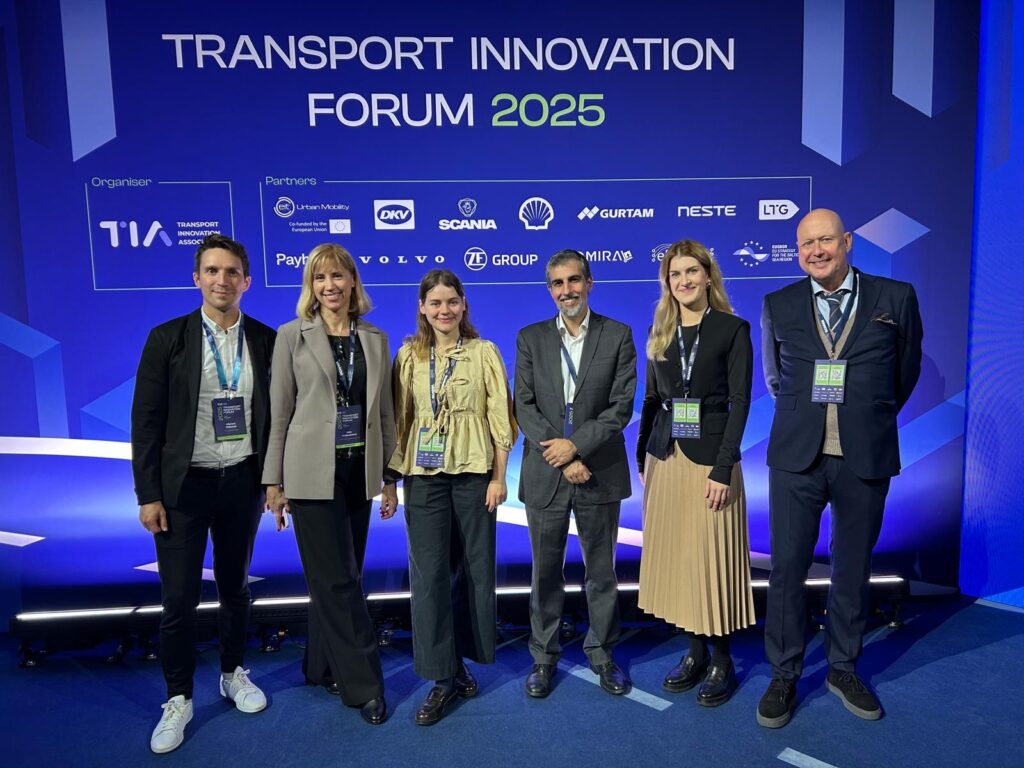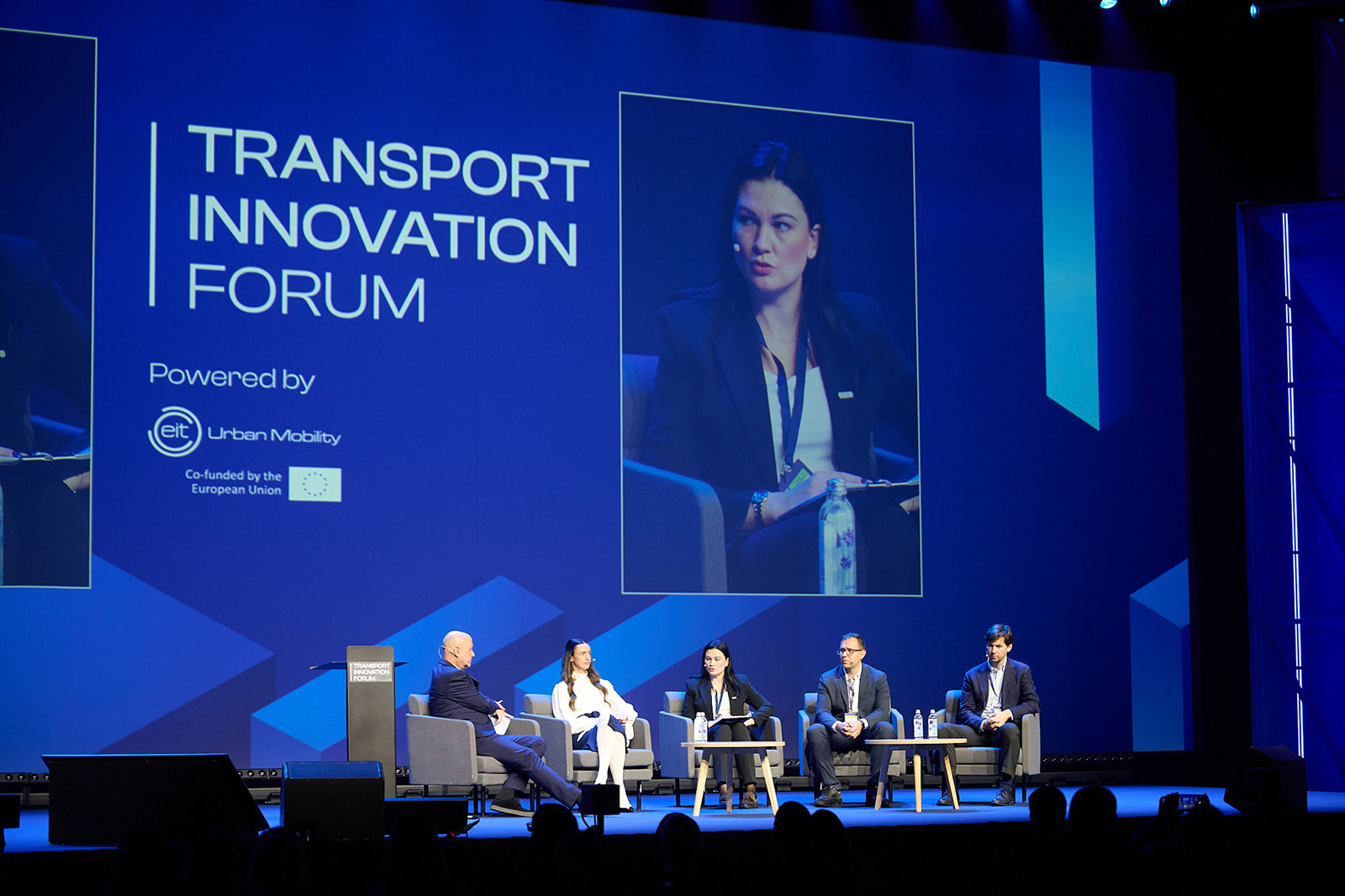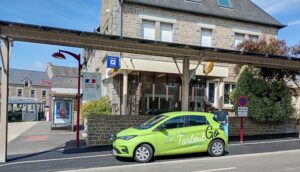Discussions at the Transport Innovation Forum 2025 revolved around how local mobility innovation ecosystems and public-private partnerships contribute to the EU’s competitiveness in times of geopolitical challenges.
The forum took place in Vilnius, Lithuania, on 15 and 16 October 2025. It brought together hundreds of private and public sector representatives to discuss evolving trends and challenges in transport, mobility and logistics.
Local innovation as the key to EU competitiveness
Can Europe turn its climate challenge into a source of competitive advantage? This was the question posed by EIT Urban Mobility CEO Marc Rozendal in his keynote.
“I believe we can. And the sustainable urban mobility transition will be at the heart of it,” he said.
Rozendal argued that the EU’s climate goals are an opportunity for Europe to increase its global competitiveness. However, succeeding will require three transformational imperatives: closing our innovation gap, decarbonising our economy and reducing our dependencies on non-EU actors.
EU competitiveness will rely not just on technology. It will also depend on the ability of local innovation ecosystems to implement sustainable mobility solutions efficiently. When it comes to transforming how we move, the answer lies locally.
“Cities are the engines and enablers of Europe’s mobility innovation,” said Rozendal. “To overcome challenges and barriers, a mobility innovation ecosystem with strong public-private partnerships is a requirement.”
Europe also needs to be in the driver’s seat of innovation in sectors that will matter in tomorrow’s economy. This includes autonomous vehicles, small- and medium-sized electric cars and micromobility such as Light Electric Vehicles (LEVs) and bike-sharing.
Rozendal concluded: “And we need trust. Trust is another crucial component if Europe is to turn the climate transition into a competitive advantage.”
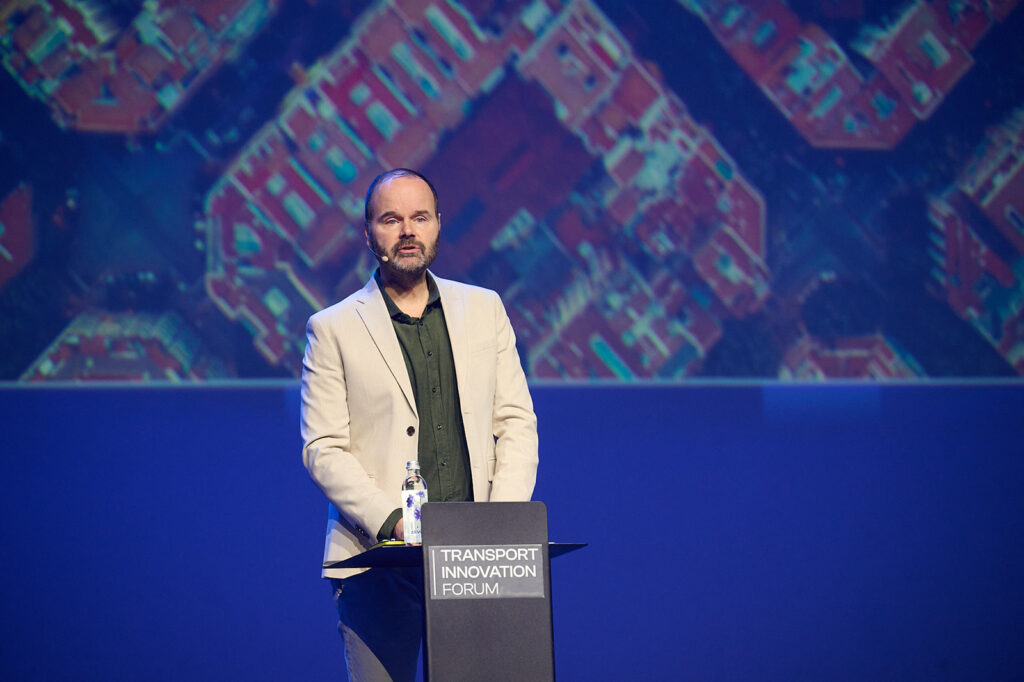
The challenges ahead for mobility innovation and public-private partnerships
In a panel discussion moderated by Anders Bengtsson, Head of Innovation Hub North at EIT Urban Mobility, representatives from the public and private sectors discussed the role of public-private partnerships to foster sustainable and smart city innovations.
In general, public institutions are becoming more open to experimentation, said Kārlis Kalniņš, Computer Vision Solutions Manager at LMT, a mobile network operator from Latvia: “It’s changing a lot. Public institutions are more engaged in pilot projects and European funding, but it’s still hard to get solutions through the system.”
Gintarė Janušaitienė, Head of the Sustainable Mobility and Innovation Group at Lithuania’s Ministry of Transport and Communications acknowledged the challenge: “Technology changes too fast. The best solution today can be something very different tomorrow.”
Another major challenge is the lack of harmonisation. “You need to understand the different ministries, each having different priorities. It takes time. Each ministry sees it from their side,” said Kalniņš.
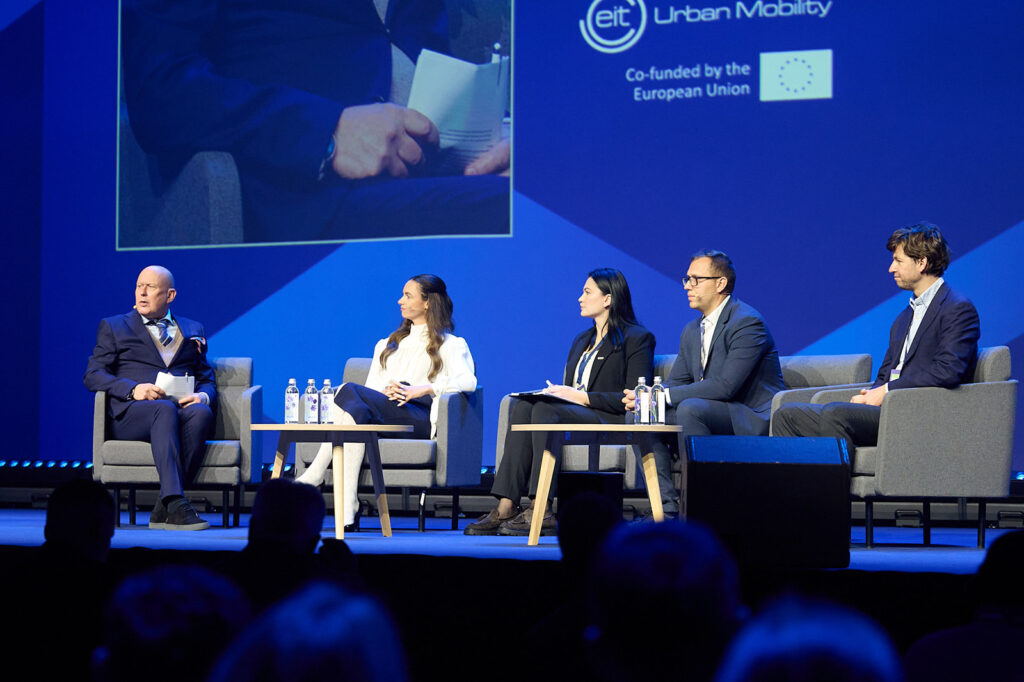
How to make public-private partnerships work
Public-private collaborations can help address these challenges more effectively. They also ensure that cities and local decision-makers can innovate faster, to the benefit of both citizens and Europe’s competitiveness.
“All decisions should ultimately contribute to improving the quality of life of citizens,” said Loreta Levulytė-Staškevičienė, CEO of JUDU, the public transport authority of Vilnius. To do so, “the public sector needs to become more open to innovation.”
Viesturs Celmins, Managing Director at VEFRESH, also emphasised the importance of sharing learnings between cities: “Smaller cities look at the bigger ones. If they succeed, others follow. But sometimes, smaller cities can do things better.”
Tauragė, Lithuania, is one of these small cities. Simas Gaidelionis, Development Project Specialist at the Tauragė District Municipality, presented the city’s RAPTOR innovation project. RAPTOR is a programme funded by EIT Urban Mobility.
This small city of 21,000 inhabitants is piloting an AI and computer-vision tool developed by Univrses, a Swedish SME. The tool enables real-time monitoring of public transport stops and defects, which makes maintenance easier and more efficient. “Innovating does not depend on your size, it depends on your vision,” said Gaidelionis.
“If public and private actors work together, innovation can happen faster,” said Levulytė-Staškevičienė. “We build capacity better locally than when importing from elsewhere and building long value chains,” added Celmins.
Supporting local innovation ecosystems through well-established public-private partnerships are key to strengthening EU competitiveness while efficiently implementing the green transition.
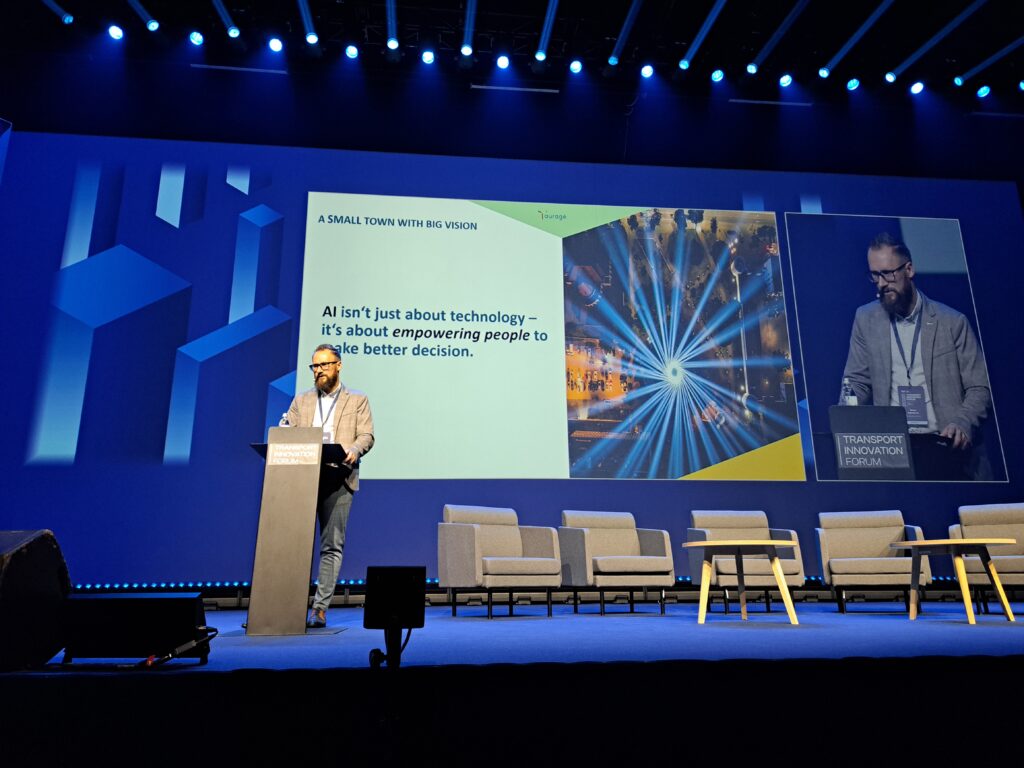
Putting people first
Local citizens are at the heart of mobility innovation, as they are the ones who will benefit from it. Their engagement is a key component of successful implementation and adoption.
“We need to build the capacity [to innovate], and the citizens need to be in the centre. It is about culture,” said Celmins.
Levulytė-Staškevičienė noted that citizen engagement had improved significantly in recent years: “Citizens in Vilnius are better involved, and as a result the quality of our services have improved,” she said. This resulted in better schedules, real-time information and more modern vehicles, making the entire public transport system more attractive to its users.
Ultimately, by combining local innovation, citizen engagement and strong partnerships, European cities can turn mobility challenges into a source of competitive advantage.
The Transport Innovation Forum is organised by our silver partner, the Transport Innovation Association, in cooperation with the Lithuanian Ministry of Transport and Communications.
